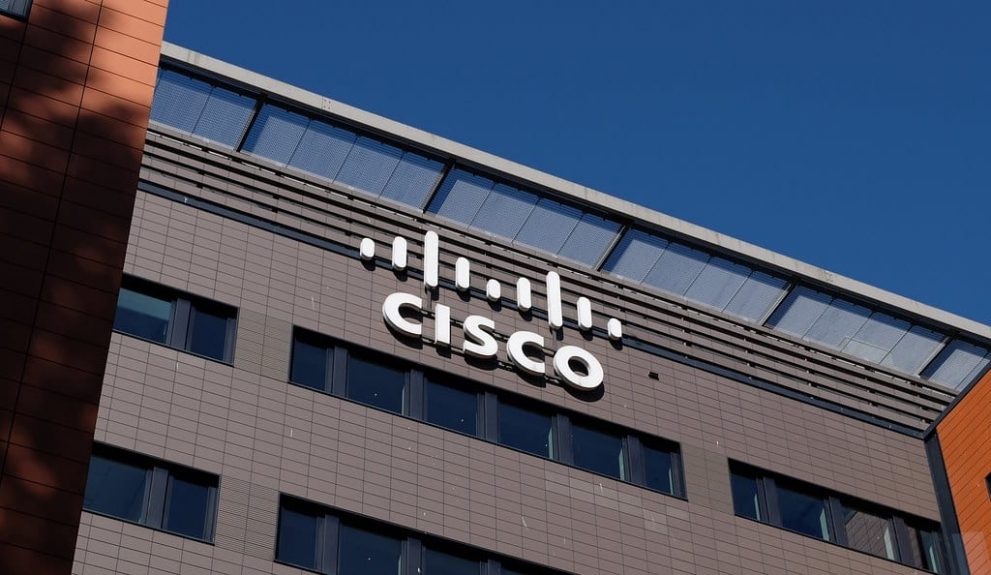
There’s a lot to be said for betting on the Googles, Apples and Amazons of the world, members of the FAANG group of Big Tech stocks that have done very well over the pandemic and seem to be on everyone’s list year after year.
But where’s the love for old tech? says Brian Acker of fund manager Acker Finley. In particular, he’s thinking of Cisco Systems (Cisco Systems Stock Quote, Charts, News, Analysts, Financials NASDAQ:CSCO), which Acker says is a great play for those cautious investors looking for something better than today’s poor rates on T-bills.
Cisco has delivered admirably over the past year where the stock made up for a bumpy, pandemic-influenced ride in 2020. Over the past 12 months, CSCO is up about 38 per cent despite producing mixed results in recent quarters. The $254 billion market cap company, which comes with a 2.4 per cent yield on its dividend, has only recently been hitting multi-year highs where, at $60 per share, the last time Cisco was at this level was over 20 years ago during the dot-com boom. That shows the longevity of the name but also the lack of share price appreciation over the past two decades.
But investors shouldn’t shy away from Cisco, says Acker, who has a price target of $81.93 on the stock, making for a projected upside of about 33 per cent.
“It’s old tech,” said Acker, speaking on BNN Bloomberg on Wednesday. “Let me give you an example with Oracle. I couldn’t recommend it today [but] we’ve held on to that for years. For some of our clients our cost is 12 bucks, and it just exploded literally over the last year.”
“So, the old tech names, I think with the yield with 30-year treasuries this morning at 1.9 per cent, you’re getting three per cent yields on a lot of these stocks,” he said. “You’re getting US dollars, it’s the S&P 500 where all the money’s going and you can sleep at night with this particular stock. And in the equity market, if we have another March of 2020 event these stocks will protect you from any sort of decline in your portfolio.”
“Cisco looks great here,” Acker said.
Cisco, which makes both hardware and software for networking and communications, landed just under the $50-billion mark in revenue in its latest fiscal year, which ended on July 31, 2021, and was more or less flat from the previous year. More recently, revenue was up eight per cent to $12.9 billion in the fiscal first quarter 2022, delivered in mid-November, while earnings also climbed eight per cent to $0.82 per share. Analysts had been calling for $12.98 billion for a topline and $0.80 per share. (All figures in US dollars.)
“In Q1, we had robust growth and continued strong demand despite the very dynamic supply environment,” said Chuck Robbins, Chair and CEO of Cisco, in a press release. “Cisco’s technology sits at the heart of the accelerated digital transformation happening today. Our breakthrough innovation, strong demand and the success of our business transformation position us well for another year of growth in fiscal 2022.”
At the same time, Cisco shares fell with that November earnings release as the market reacted to, among other things, management’s guidance which called for full fiscal 2022 adjusted earnings of between $3.38 and $3.45 per share and revenue growth of between five and seven per cent. Analysts had on average expected $3.42 per share in earnings and about 6.1 per cent revenue growth, according to Refinitiv data.
“We’ve been taking multiple steps to mitigate the supply shortages and deliver products to our customers, including working closely with our key suppliers and contract manufacturers, paying significantly higher logistics costs to get the components where they are most needed, working on modifying our designs to utilize alternative suppliers where possible and constantly optimizing our build and delivery plans,” Robbins said in the quarter’s conference call.
Last month, Cisco renewed its dividend by handing out $0.37 per share, the same as the previous three quarters and up a penny from a year earlier. The company has steadily increased its dividend over the years, going back to when it was instituted almost 11 years ago.
For Acker, choosing a less flashy stock is the sensible thing to do in Cisco’s case.
“It’s not let’s call it sexy or anything but these are just companies that offer extraordinary value,” Acker said. “About the second or third week of December, we tried to roll over some treasury bills and we were quoted four basis as a yield, so that’s what you’re getting in fixed income.”
“So, if you can get these big cap companies that have good valuations and a yield I think you should have a portfolio of these companies,” he said.
Leave a Reply
You must be logged in to post a comment.





 Share
Share Tweet
Tweet Share
Share




Comment